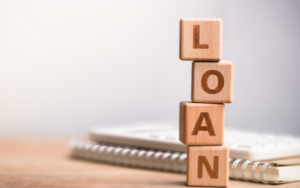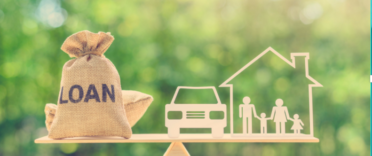
An unsecured loan can help you to spread the cost of a home renovation, your wedding or a new car. It can also allow you to consolidate high-interest debt and simplify your finances. An unsecured loan can be preferable to a secured loan because you do need to put down any assets as security. Instead, you are judged on your credit history and current finances. But an unsecured loan will not be for everyone. Poor credit history, high-interest rates and borrowing limits could all make it an expensive option for some borrowers.
In this article, we will explain the basics of an unsecured loan, what an unsecured loan means and the alternatives to unsecured loans, so that you can make an informed choice.
You can compare the UK's top personal loans on our page 'The best personal loans'.
What is an unsecured loan?
An unsecured loan – also called a personal loan or unsecured personal loan – is a type of financial product that involves borrowing money without putting up an asset as collateral (something that can be sold if you do not repay the loan). You are charged interest on the loan, which means that you will pay back the sum you borrowed (the capital) plus the interest on your debt.
Instead of basing your loan on your assets, a lender will choose how much to lend to you and at what rate of interest based on an affordability check. This will take into account your credit history and your current financial circumstances.
Despite the lack of collateral, borrowers cannot refuse to pay back an unsecured loan. You will face penalties, increased interest rates and fines if you miss payments, fail to pay back the loan on time or do not pay it back in full. A lender could even mount a legal challenge to get the money, which could potentially leave you with a County Court Judgement (CCJ). This can make accessing credit in the future very challenging and expensive.
How does an unsecured loan work?
Borrowers will need to apply for an unsecured loan and be approved by the lender. You will be required to prove that you are both a UK resident and over the age of 18. Many lenders will let you check to see if you are likely to be approved for the loan before you officially apply. This can help you avoid any declined applications for credit appearing on your credit file.
The application process will involve a credit check and an affordability check. This is to see how likely you are to meet the monthly repayments.
Once you have been approved and received your money, you will need to start paying it back, with interest. This will usually be through regular monthly payments, though lenders will let you overpay. It is a legal requirement for loan providers to let borrowers pay back an unsecured personal loan in full before the end of the term if they choose to, though the lender can charge an early repayment fee in some circumstances. All fees will need to be made clear by the loan provider before you sign up, so any extra charges should not come as a surprise.
There should not be an early repayment charge if you are paying off up to £8,000 and you took the loan out after February 2011. If you are paying off over £8,000 your lender can charge 1% as a fee, unless you are in the final year of the repayment period, in which case it can only charge 0.5%.
You will need to make regular monthly payments over the full length of the loan term, or until the balance is paid off. If you are unsure how much it will cost to repay your unsecured loan early, you can ask your lender for a settlement statement.
What happens if you miss an unsecured loan repayment?
Failing to repay an unsecured loan can be very expensive and can damage your chances of accessing credit in the future. However, you do not need to panic if you miss one instalment. Your lender will follow a process to reclaim the money you owe.
Lenders will usually send a letter after one missed payment, instructing you to make up any arrears through subsequent monthly payments. You will likely be charged an administration fee for the letters sent by your lender. In most cases, the fees will then be added to your debt.
If you miss further payments, you could be issued with a default notice. This would usually give you two weeks to clear the debt. The next step from the lender would be a default registered on your credit report and a request to repay the loan immediately. Not repaying in full at this stage could result in your lender going to court to recover the debt.
This is an extreme example and there are many steps that you can take to avoid reaching this scenario. The first move is always to contact the lender. Most legitimate loan providers want borrowers to repay their debt to avoid costly court proceedings. This means that your lender could agree to adapt your payment schedule to make repayments more manageable.
You can also get free help and advice from a number of debt charities. These organisations offer essential information and will guide you through managing your debt. Read our article ‘Where to get free debt advice’ to find out more.
What can you buy with unsecured debt?
An unsecured personal loan can be used for almost any expense. You could buy a car, renovate your home, get married or even buy some artwork. An unsecured loan can also be a useful tool to consolidate existing debts. You can read more about debt consolidation in our article ‘What is the best way to consolidate my debt?’.
However, loan providers may decline your application if you intend to spend the money in a few prohibited areas. These include investing, paying a house deposit or gambling. You may also see your application rejected if you intend to use the money to start a new business, though you could apply for a specialist business loan instead. You can learn more by reading our article ‘How to get a business loan’.
Prospective borrowers are usually asked how they intend to spend the money as part of the application process. Is it important to be honest about why you are applying, as there may be other lending products better suited to your needs.
How much does an unsecured loan cost?
The cost of an unsecured loan will depend on the APR (annual percentage rate) offered by the lender and the length of the repayment period. The APR includes any arrangement fees, though there could also be other charges to pay. For example, the total amount payable on a £10,000 loan with an APR of 8.9% over five years will be £12,326.40.
Unsecured personal loans generally range between £1,000 and £25,000, though some lenders may offer more or less. You may think that the more you borrow the more expensive it will be, however, many lenders will charge a higher APR if you are borrowing a smaller amount.
It is important to remember that your loan may actually cost more than what you see advertised. Lenders advertise a representative APR, which actually only needs to be offered to just over half of the successful applicants. This means that the other successful applicants will usually end up paying more. If you do not have a great credit history or you are not a high earner, you may find you are offered more than the advertised representative APR when you apply for your unsecured loan. The best way to avoid any unwelcome surprises is to request a quote from your chosen lender before you apply.
You should also keep in mind that some lenders offer variable interest rates. This means that the rate you start on will not necessarily stay the same for the duration of your loan term. It could drop, meaning you pay less interest, or it could go up, meaning your unsecured loan will be more expensive.
How much can you borrow with an unsecured loan?
Many lenders will advertise unsecured loans from £1,000 to £25,000, though some specialist providers will offer much smaller or larger amounts. What you are able to borrow will depend on the restrictions of the lender you choose, your financial situation and your credit history. If you find that you cannot access the sums you are looking for through an unsecured loan, you could consider taking out a secured loan. This comes with the added risk of putting a valuable asset up as collateral. You can read more in our article ‘What is a secured loan?’.
The key is to only borrow the amount you need and how much you can afford to repay. Falling into a debt spiral can affect your financial future and if you are not confident you can afford the monthly repayments, or you have a history of struggling with debt, you should consider other options. Read our article ‘Where to get free debt advice’ to see what steps you could take.
Advantages and disadvantages of personal loans
An unsecured loan could help you spread the cost of a big expense or consolidate your existing debt, but it will not be the best borrowing option for everyone. Here are the main pros and cons.
| Advantages of personal loans | Disadvantages of personal loans |
| Widely available: You don’t need to be a homeowner or have a valuable asset to use as security. | Higher interest rates than secured loans: Lenders will usually charge a higher rate of interest as there is no asset secured against the loan. |
| Speed: The application process is often quick and easy. | Smaller loan amounts than secured loans: Lenders generally offer bigger loans if there is a valuable asset put up as collateral. |
| Adaptability: Borrowers can access a wide range of loan amounts and different repayment periods. | Fees: You may have to pay arrangement fees, early repayment charges and other costs, especially if you miss any payments. |
| Fixed costs: Many unsecured personal loans are fixed-rate, which means you will know exactly how much you need to pay each month. | Borrowing too much: Lenders often reduce the APR as the borrowing amount increases, which can make it tempting to borrow more money to access a lower rate. |
| Lower interest rates compared to credit cards: Unsecured loans will usually come with a much lower interest rate, especially if you are borrowing a large amount. | Loan amount limitations: Most major lenders will not lend less than £1,000. Alternative lenders that do offer these deals often charge much higher rates of interest. |
| Higher borrowing limits than credit cards: Most borrowers will be able to access more money through an unsecured loan than a credit card. | Loan term limitations: Major lenders are unlikely to agree to a loan term of less than 12 months. Any lenders that do offer under a year will usually charge high interest rates. |
| Debt consolidation: You could use an unsecured loan to consolidate other more expensive debt. | Limited introductory offers: Personal loans rarely come with introductory offers like you would find with a credit card. Borrowing on a credit card can mean you pay 0% interest for a set period of time. |
Alternatives to unsecured loans
Unsecured loans vs secured loans
One major alternative to an unsecured loan is a secured loan. This type of borrowing requires you to put up a valuable asset – which could be your home or your car – as collateral. If you do not meet your repayments or fail to pay back the loan in full, you could lose the asset. You may be able to borrow more with a secured loan than with an unsecured loan, but it comes with that additional risk.
You can read more about the differences in our article ‘Secured vs unsecured loans: Which is best for me?’
Unsecured loans vs credit cards
A credit card could be a better option than an unsecured loan if you are planning on borrowing a small amount for a short period. This is especially true if you can get a 0% purchase credit card.
You can find out which option would suit you best by reading our article ‘Is it better to get a credit card or a personal loan?’.
Comparing different credit cards is a key part of getting the best deal for you. Money to the Masses has helped to simplify this process by partnering with Creditec*, an online comparison service. You do not need to trawl through countless different provider websites hunting for the best cashback or lowest fees, as Creditec’s personalised search results will show you the key details you need to know in one place. Your tailored list will also feature the cards that you are more likely to be accepted for, cutting down the chance of any applications you make being rejected. Your search results are built using a soft credit search, so there will be no damage to your credit score. You can start your search by clicking this link*.
What to do if you need help paying back your unsecured loan
Unsecured loans come with a set repayment period consisting of a series of monthly payments. Missing monthly payments can lead to late fees and growing debt. Defaulting on your loan can lead to a CCJ and future issues if you try to borrow money again.
If you are struggling with your unsecured loan repayments, the first thing you should do is contact your lender. There are financial rules around how lenders should treat borrowers who are at risk of not being able to pay back their debt. You may be able to restructure your debt or even take a payment holiday.
You should also reach out to a free debt charity that can give you advice on how to manage your debt and can speak to your loan provider for you.
As well as our page on ‘Where to get free debt advice’, you can read our article ‘Top-5 ways to tackle personal loan debt’.
Breathing Space, a government-launched scheme to help borrowers struggling with debt in England and Wales, can provide valuable short-term relief from creditors. You can find out more in our article ‘What you need to know about the Breathing Space debt respite scheme’.
If you have only recently taken out a loan, but are now concerned you will not be able to meet the monthly repayments, you may be able to cancel the agreement. You will get a 14-day cooling off period with any unsecured loan. It starts from when you receive a copy of the loan agreement or when it is signed, whichever date is later. Once you cancel, you will have 30 days to repay the money. Any additional fees should be refunded, though you may have to pay interest for the period of time you had the money.
How to get an unsecured personal loan
You can get an unsecured personal loan by comparing prices online and then applying with your chosen lender. It can be tempting to go with a bank or building society you already use, but you could end up paying more in interest and fees.
The key figure to look out for when you compare unsecured loans is the APR. Remember that this is not necessarily the interest rate you will pay, but it is the best indicator of which loan provider will be the cheapest. Ask the lender for a quote before you apply so that you have an exact figure of what interest rate you will be paying. You can also use an online eligibility checker to see if it is likely you will be successful before you apply.
If a link has an * beside it this means that it is an affiliated link. If you go via the link Money to the Masses may receive a small fee which helps keep Money to the Masses free to use. But as you can clearly see this has in no way influenced this independent and balanced review of the product.



